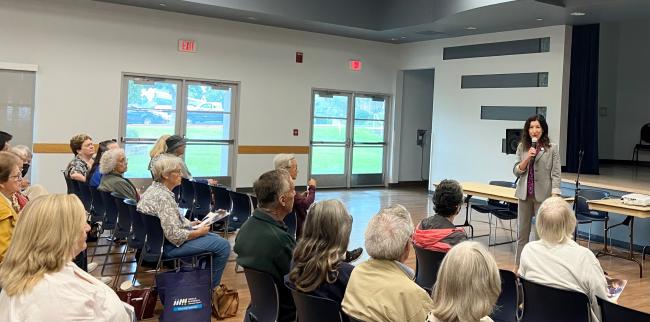
On Wednesday, October 12, Assemblywoman Cottie Petrie-Norris hosted the Senior Scam Stopper Seminar at the Costa Mesa Senior Center. The event was attended by 60 seniors who learned how to protect themselves from fraud and scams concerning home improvement, auto repair, insurance, telemarketing and real estate.
The panel of experts included representations from the Contractors State License Board, Department of Financial Protection and Innovation and California Department of Insurance. The experts shed light on the different ways seniors become susceptible to scams whether it is through the phone or on the Internet. They also informed the attendees about the resources available to them, that their respective agencies provide in the case that someone became a victim of fraud.
In her opening remarks, the Assemblywoman noted how important it is to host the Senior Scam Stopper Seminars to provide timely information and resources to the senior population who are most targeted by fraud schemes. “Seniors are the most targeted population by scams. Last year, cybercrime cost Americans age 50 and older nearly $3 billion,” said Assemblywoman Cottie Petrie-Norris (D-Irvine).
The event was also attended by local organizations including Alzheimer’s Orange County, Meals on Wheels and the Council on Aging-Southern California. They offered seniors with important information regarding the services they provide and ways they can support the community in Costa Mesa.
California is also preparing for an aging and changing population as the state’s over-60 population is projected to diversify and grow faster than any other age group. Last year, the state released a Master Plan on Aging – a blueprint for state government, local government, the private sector and philanthropy to prepare the state for the coming demographic changes.
In the Legislature, the Assemblywoman has been an advocate for expanding and creating easier access to the Program of All-Inclusive Care for the Elderly or PACE, which allows seniors to reside in their homes and receive essential services that improve their independence and quality of life.